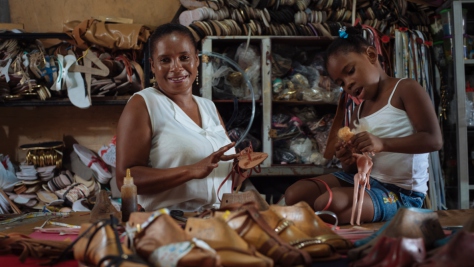
Right now, only 1 per cent of refugees have access to higher education.*
By 2030, help ensure that 15 per cent of refugees have access to tertiary learning.
It’s an ambitious target. But we know how to achieve it:
- Scholarship programmes in the first country of asylum
- Connected Learning programmes: a blended learning approach in partnership with a network of accredited universities
- Technical and Vocational Education and Training (TVET): education, training and skills development relating to a wide range of occupational fields, production, services and livelihoods
- Establishing complementary pathways to protect refugees through higher education opportunities in third countries
- Advocacy with ministries, universities and academia to expand access for refugee students to universities and to mitigate barriers that prevent refugees from enrolling in university
Be part of the solution.
Join us. Together, access to higher education for more refugees can become a reality.
Sustainable Development Goal 4
Ensure inclusive and equitable quality education and promote lifelong learning opportunities for all.
SDG4 won't be achieved if we don't prioritize refugee education.
Global Compact on Refugees
The Global Compact acknowledges that education and recognition of qualifications can increase the chances of young refugees and their families having an independent working life and can reduce dependence on humanitarian aid.
* The 1% estimate was compiled in consideration of the following: 1) estimated tertiary enrolment rates of Syrian refugees in the five main hosting countries in the Middle East and North Africa region (Lebanon, Iraq, Turkey, Egypt and Jordan); 2) global DAFI enrolment; 3) global Connected Learning enrolment; and 4) a grouping of other known enrolment.


